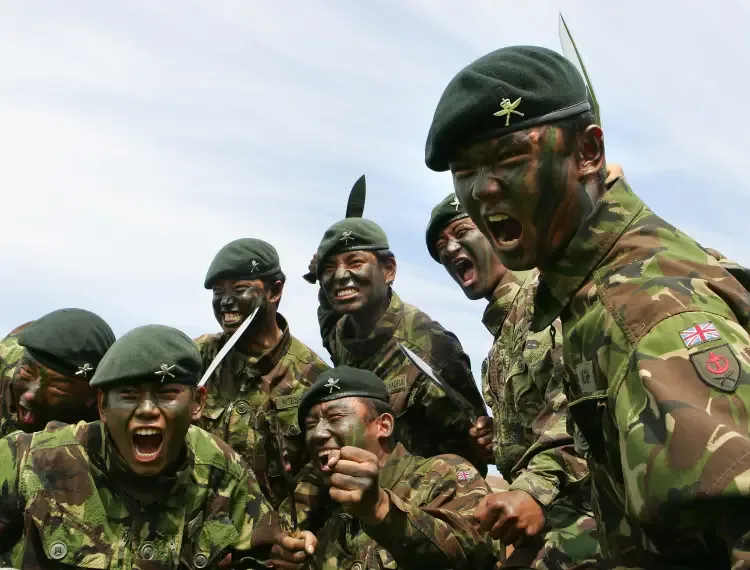The title “Bir Gorkhali” is a testament to the bravery and valor of Nepalis, particularly the soldiers of the Gorkha regiments. The term originates from the word “Bir”, meaning brave, and “Gorkhali”, referring to the Gorkha people of Nepal. This phrase honors the courage and resilience that Nepali soldiers have shown throughout history.
The Legacy of the Gorkhas
The Gorkha identity became prominent during the reign of Prithvi Narayan Shah, the king who unified Nepal in the 18th century. His army, composed of fierce and loyal soldiers, defended Nepal’s sovereignty against external powers, including the British East India Company during the Anglo-Nepalese War (1814–1816). Though Nepal lost territory in the war, the bravery of the Gorkhas impressed the British.
This admiration led to the recruitment of Gorkhas into the British Army after the Sugauli Treaty of 1816. From then on, the Gorkha soldiers, with their iconic Khukuri knives, became renowned worldwide for their fearlessness and loyalty.
The Gorkhas in Global History
Gorkha soldiers have fought in numerous wars, including World Wars I and II, serving with distinction in the British and Indian armies. Their discipline, strength, and courage in battle earned them numerous honors, such as the Victoria Cross, the highest military award in the British Army.
“Bir Gorkhali”: A National Pride
For Nepalis, the term symbolizes more than military valor. It reflects their national character—resilient, brave, and self-reliant. The legacy of the Gorkhas instills pride and unity among Nepali people, making “Bir Gorkhali” a phrase that resonates deeply across the nation.
Why Are Nepalis Called Bir Gorkhali? Meaning and History
Bir Gorkhali, a term literally defining a “brave Gorkhali,” is an epithet that represents courage, sacrifice, and the indomitable fighting spirit that kept the Nepali people going through the centuries of hardships, and thus, is still very much alive today.
The tale of the name goes back to the 1700s when Nepal was a patchwork of tiny principalities. One of them was the Gorkha Kingdom that was under King Prithvi Narayan Shah’s leadership. His dream was to combine these divided states into one country. Workers in the royal army were known as Gorkhalis, their heroic valor soon became the talk of the whole world beyond their native land.




